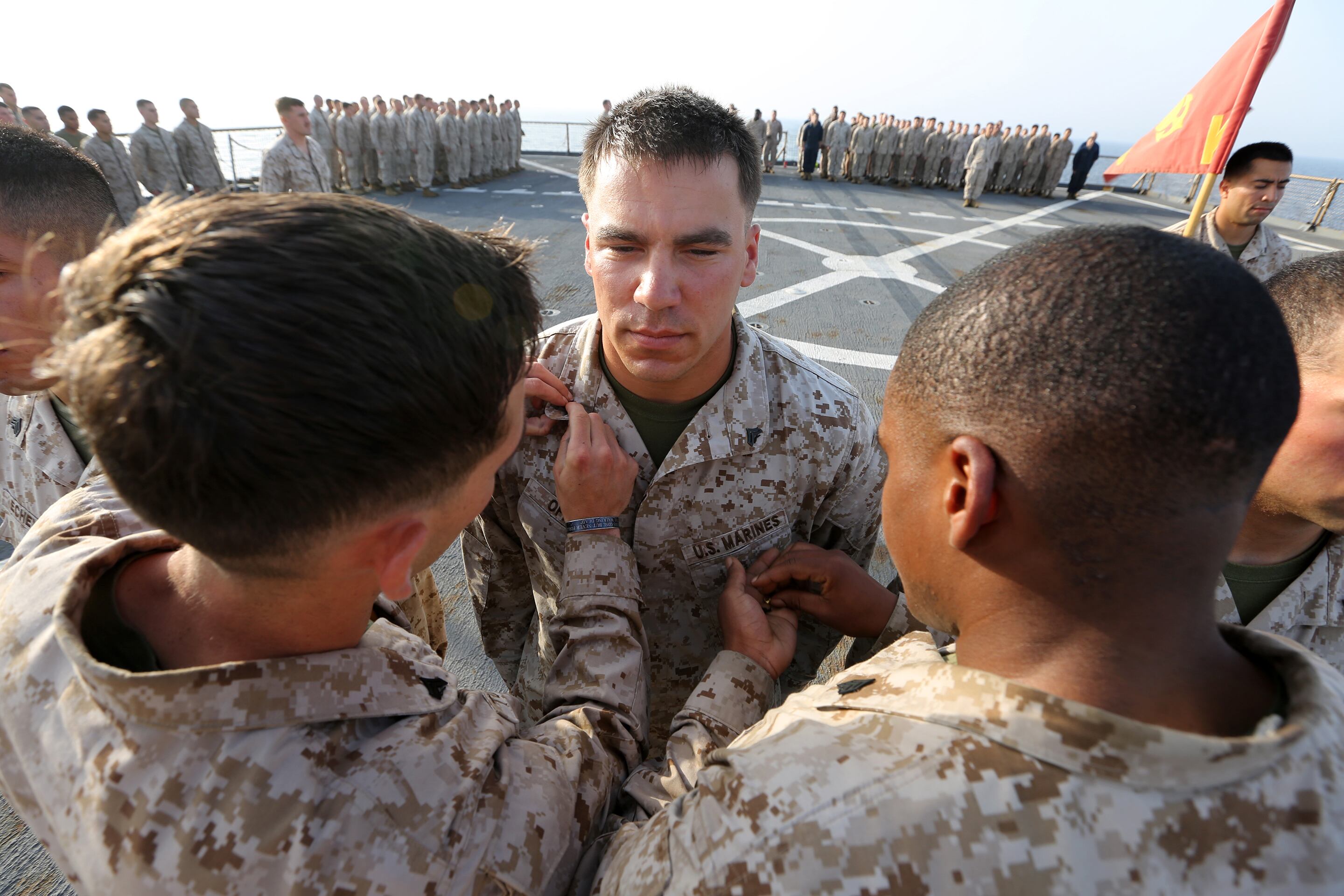Lance corporals and corporals looking to pin on a stripe will soon stand before a promotion review panel that will serve as a "quality control board." This e change, addressed in Commandant Gen. Robert Neller's fragmentary order to the Commandant’s Planning Guidance, released Jan. 19, will give leaders a hands-on mentorship role with junior Marines to ensure they , and ensure junior Marines are well-prepared to become leaders themselves. The change was announced Jan. 19 in Commandant Gen. Robert Neller's fragmentary order to the Commandant’s Planning Guidance, released last year by his predecessor, Gen. Joe Dunford.
Instead of standing as another hurdle to promotion, the new process may just give Marines you a head start.
"This is basically kind of a quality control and it also is an opportunity for the chain of command to see and talk to these Marines," Commandant Gen. Robert Neller told Marine Corps Times. "The Marines know they have to showthey are qualified. The mentors have to prepare, the leadership has to review, so the goal is not to deny people a promotion, but just to make sure everybody understands we all have equities in this, and in the process I think everybody wins."
The brass at headquarters will not tell the unit leaders what to they ask, but Neller doesn’t want basic military questions. He wants a conversation in which leaders engage and mentor their Marines.

Marines pin chevrons on Cpl. Gregory Opinski, a machine gunner with Kilo Company, Battalion Landing Team 3rd Battalion, 6th Marines, 24th Marine Expeditionary Unit, during his promotion to corporal in April.
Photo Credit: Sgt. Devin Nichols/Marine Corps
Specific details are in the works and will be published in a future Marine Aadministrative message. Two key pieces will be 12-month time-in-grade and time-in-service requirements to be promoted to corporal, and the requirement for battalions and squadrons "to conduct quarterly unit promotion panels to evaluate Marines who meet time-in-grade requirements to ensure that a commander's recommendation concerning a Marine's promotion to corporal or sergeant is thoughtful and deliberate," said Sgt.Maj. Grant VanOostrom, the top enlisted Marine at Manpower and Reserve Affairs.
Personnel data shows that more than 92 percent of lance corporals with 12 months time in grade don't have the cutting score needed for promotion. Unit leadership will be responsible to ensure everything from marksmanship, and fitness scores, to work performance, and professional military education and other factors are is up to par before the Marine steps before the promotion review panel.
"The last 14 years of war have demonstrated a demand for small-unit leaders who possess the potential, motivation and maturity to satisfactorily discharge the duties of a noncommissioned officer," VanOostrom said. "Corporals and sergeants are required to exercise an ever-increasing degree of leadership and professionalism. The end state is what it has always been ... to ensure the Marines recommended for the title of NCO have demonstrated they are worthy of the next higher grade."
Personnel officials will have final recommendations to the commandant by April 1. VanOostrom said they are "ironing out the details and preparing for final approval."
The unit promotion panels are meant to codify and formalize existing requirements, and aims to recognize and retain "those who possess and exhibit the leadership, talent and skills for the future force," according to the CMC’s fragmentary orderplanning guidance. Neller has long used this approach within his various commands, and said the results have been strong. Now he looks to take that Corps-wide.
"Most Marines I have talked to were excited about it because they were like 'Hey, I am ready, I will go in front of any board, ask me anything you want,' " Neller said. "I think it will make them understand that becoming an NCO is not something that is just going to happen. For most Marines, it will be a positive event."




